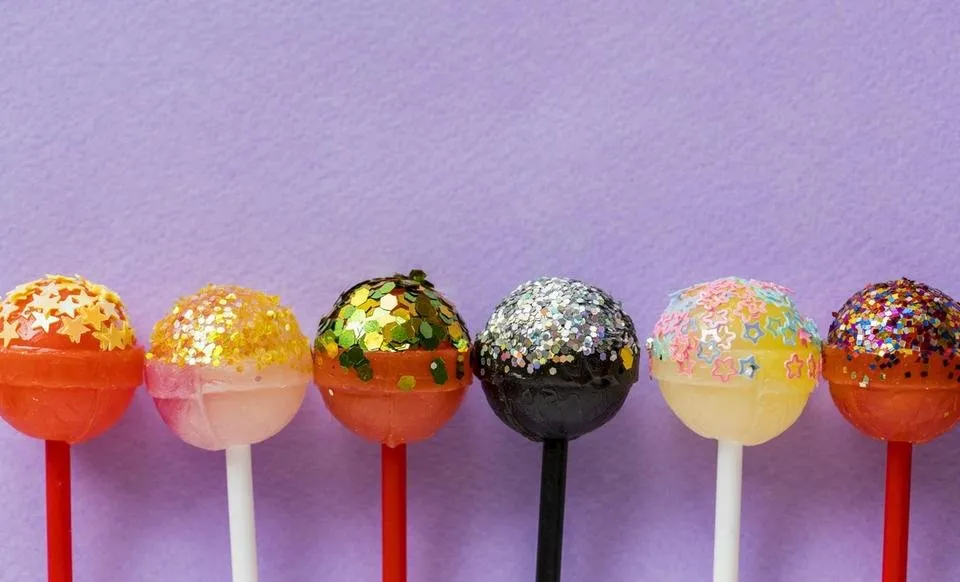The desire to eat candy that strikes immediately after lunch or in the late afternoon is irresistible. You probably know it, and you also know it could hinder your friendship with the scales.

Source
Although sometimes it is normal to want to eat sweet, something else could be behind that daily (almost uncontrollable ...) will to attack the bakery. In addition to the feeling of guilt that hits after dessert, sugar can still damage your health. First, we understand why sometimes you look like an ant and see tips to lose the desire to eat sweets.
Why does our body ask for the cake and not a foot of lettuce?
Sugar (and other carbohydrates) stimulates the release of serotonin, the brain's neurotransmitter responsible for that feeling of pleasure and well-being that comes immediately after a bonbon. Neurotransmitters are messengers of the brain, allowing communication between brain cells (neurons).
Among the main functions of serotonin, we have:
• It regulates our sleep;
• Balance our mood;
• Check our satiety.
If for some reason we become sad or a little depressed, we will probably have the desire to eat sweets. This is due to the fact that sugar accelerates the absorption of tryptophan, the precursor of the amino acid serotonin. That is: The good news is that it is not just the sugar that promotes the release of serotonin. There are several foods that you can include in your diet to lose the desire to eat sweets. Watch our tips on how to take the impulse to eat the desserts right underneath.
Evolution, one of the culprits
Why do we like sugar so much? Why do we want to eat a brigadier and not a carrot?
Among other reasons (the habit, for example), we can, therefore, blame our friend Evolution. To know what foods were safe to eat, our ancestors were driven by sweet taste, since nothing sweet was highly poisonous (perhaps it was ingested in large quantities over the long term, but not in moderate doses). However, they only had sweet foods available at certain times of the year and always in their natural form. Fruits were usually available in the summer when it was important for the body to take more calories, accumulating energy for the winter.
Refined sugar is a relatively recent commodity and until recently it was only accessible to the wealthier classes. It was the mechanization that allowed a great increase in the world sugar production, decreasing its value and increasing its reach.
And if at the time of the caves you could eat something sweet from time to time, we get to the 21st century with a third of the calories of our diet from sugar! The good news is that our palate is educable, that is, as we gradually become accustomed to more and more sugary foods, we can also train ourselves to reduce the desire to eat sweets.
What a frequent desire to eat sweetly can mean
The desire to eat sweet is no longer normal when it becomes frequent and uncontrollable, leaving you hostage to sugar. Do you know that feeling of not being able to concentrate on a task, get angry or even have a headache if you do not eat a dessert? It could be your body trying to warn you that something is not right. Just as a fever is a symptom by which your body draws your attention to something that is wrong, the desire to eat sweet can signal other conditions.
Among some of the main factors that can lead to the desire to eat sweets, we have:
• Emotional factors: some situations in your life could lead you to eat more sweets. Emotions like sadness, anger, lack, boredom, nervousness or even a way to reward yourself for a result can be responsible for your willingness to eat sweets.
• Deficiency of some nutrients: low levels of nutrients such as folic acid, magnesium, vitamin B12, zinc, and vitamin B6 can help increase the craving for sweets.
• Lack of chromium: chromium is a mineral that enhances the action of insulin, causing this hormone to remove glucose (sugar) more efficiently from the bloodstream. When insulin levels are deregulated, our body can understand that energy is lacking for cells, which causes us to send a message of hunger to our brain.
• Insulin resistance: a diet based on refined (fiber-free) carbohydrates and nutrient-poor can cause resistance to the hormone insulin. When this happens, the cells cannot receive the energy (glucose) they need to function. So even if you're done eating and your blood is full of sugar, your brain gets a message that there is not enough energy, which makes you want to eat candy.
• Fame: Staying several hours without eating can lower your blood sugar levels, leaving your body desperate for energy. So the message he sends is: I need a quick source of calories. I.e., sugar.
• Stress: the body reacts to stress by releasing cortisol, which will cause changes in blood glucose levels. To increase the energy level, you receive a message to eat sweet - a quick way of energy for the cells.
• PMS: during the premenstrual period, the levels of endorphins (neurotransmitter with analgesic effect) decrease. And how is our body to increase them? You guessed it: to go running and buy a candy bar.
• Headquarters: Yes, the desire to eat sweets can simply be thirsty. Try drinking a glass of water before hitting a candy.
• Low carbohydrate diet: As the main energy source of your body is carbohydrates, diets that excessively restrict intake may lead to more desire to eat sweets. Even eating only refined carbohydrates (white bread, sugar, and pasta) is harmful.
Suggestions to decrease the desire to eat sweets
As you already know, sugar is very addicting. From here comes that famous advertisement that says it is "impossible to eat one". One of the causes is that it activates the production of natural opiates in the brain, substances related to the emergence of addictions.
But as we said before, the good news is that just like the more sugar you eat the more you want to eat, the opposite is also true. As you change your eating habits and decrease the intake of sweets, your taste buds will change. This will make you need less sugar-rich foods to satisfy your will. After a few days, you will notice that the fruit now looks sweeter than usual, or that the sweets are very "sick".
Below we list below 7 tips that will help you lose the urge to eat all the time
1. Do not underestimate your sorrows in the ice cream teapot
Be honest with yourself and ask yourself if you're not eating candy as a response to some emotional problem. If the answer is yes, try to identify and work on this topic, trying to understand that candy is a vent that can make you feel good at the moment, but worse afterward. It feels worse to devour a bunch of cupcakes and then having to face the scales the next day? Not to mention the numerous damage that sweets can cause to your health.
2. Minimize the desserts slowly
For some people, cutting the sugar decidedly from one hour to another could have the opposite effect. Shortly after removing it from the menu, the desire to eat sweets comes much higher and you eat four chocolates instead of a single one that you would eat normally. To prevent this from happening, gradually reduce the sweetness until your will becomes less frequent.
Another tip is to exchange the caloric sweet with a piece of chocolate with high levels of cocoa (75% more), which contains less sugar and satiates more quickly the desire to eat a dessert. Be careful not to abuse because the higher the cocoa content, the higher the fat content.
3. Do not skip breakfast
Staying out without eating in the morning will increase your desire to eat sweets later. Include in your first meal of the day healthy protein sources and fats that, in addition to keeping you full longer, prevent those terrible drops of glucose in the blood.
4. Replace the candies for a fruit
The sugar found in sweets is sucrose, which the body quickly absorbs. Fructose found in fruits has a slower absorption through the body, prolonging satiety. In addition, the fruits contain fiber, which will also help you stay satisfied longer.
5. Stop eating candy running
Physical activity also has the power to promote the release of endorphins and serotonin. That is, the exercise will help you feel the same well-being you will feel after eating a piece of candy. But it brings a huge advantage: moving, in addition to not ingesting the calories of the candy, you will burn a little more!
6. Decrease salt intake
Industrialized foods and fast food contain a lot of sodium, which alters the taste buds. The excess of salt leaves your body desperate for something sweet soon after.
7. Beware of the sweetener
While not directly adding calories to your diet, artificial sweeteners can do it in two indirect ways:
• When you eat the sweetener, your brain receives a message that something sweet is coming - that is, energy! However, since calories do not reach and serotonin levels do not increase, the brain's reaction is to send a signal for you to eat - and preferably something sweet.
• The sweetener continues to leave you "addicted" to the sweet taste, not eliminating your desire for sugar - simply by disguising yourself and keeping yourself dependent on sweets.
If you need to use a sweetener, opt for Stevia (more natural) or sucralose and try not to overdo it with drops during the day. % 0










